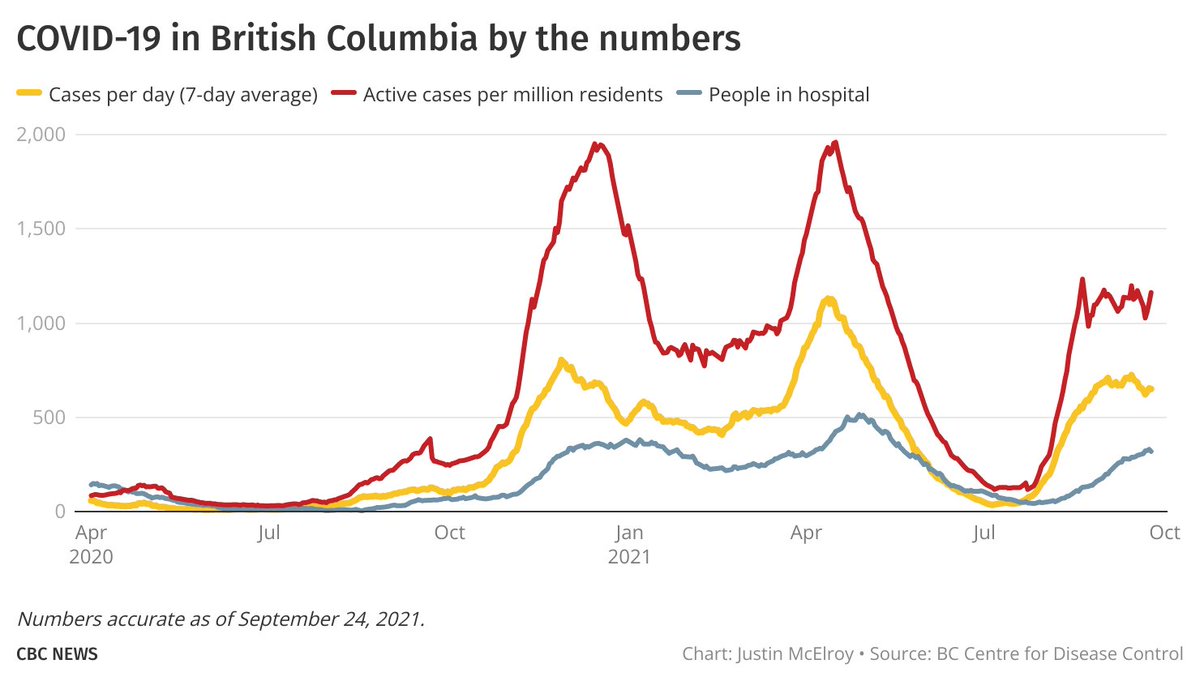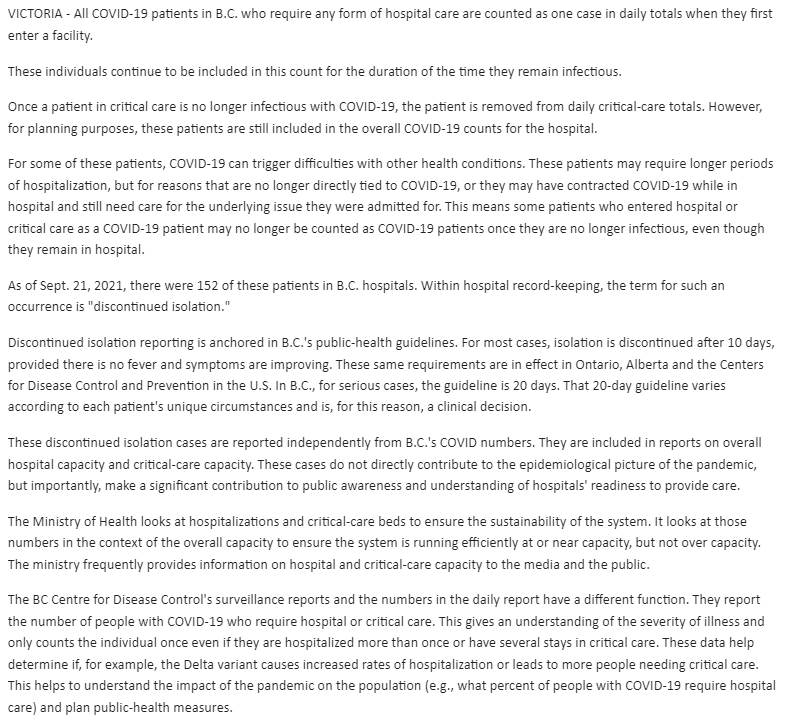
who is ready for some charts
B.C. had a pretty crummy week!
At a time when every other province has much lower per capita case counts, or a trendline that's been going significantly down, B.C.'s rolling average went up 13%, with active case counts and hospitalizations essentially static.
Not great!
At a time when every other province has much lower per capita case counts, or a trendline that's been going significantly down, B.C.'s rolling average went up 13%, with active case counts and hospitalizations essentially static.
Not great!
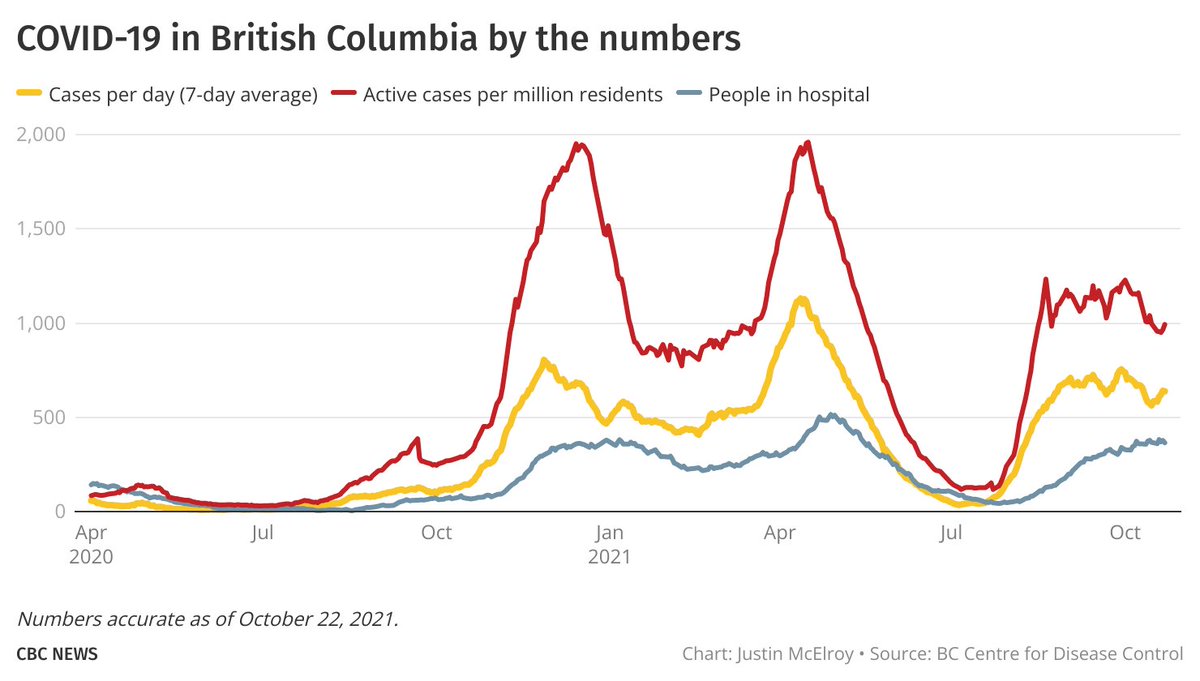
Most of this is due to another big surge in Northern B.C., which is seeing transmission similar to Alberta and Saskatchewan at the moment.
But none of the other four health authorities saw a real decline this week, and a couple saw a gentle rise.
But none of the other four health authorities saw a real decline this week, and a couple saw a gentle rise.
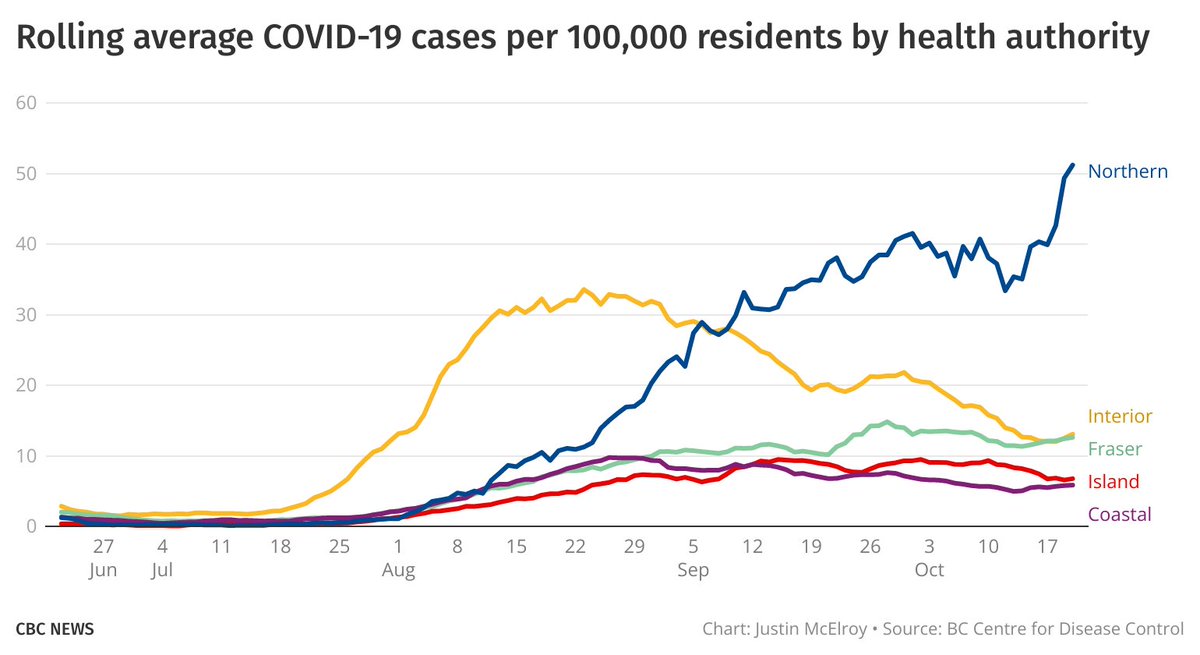
We're still seeing high transmission in some places, we're still having outbreaks in long-term care homes, and we're still seeing higher per capita deaths than the 3rd wave, about 7 times worse than Ontario right now 
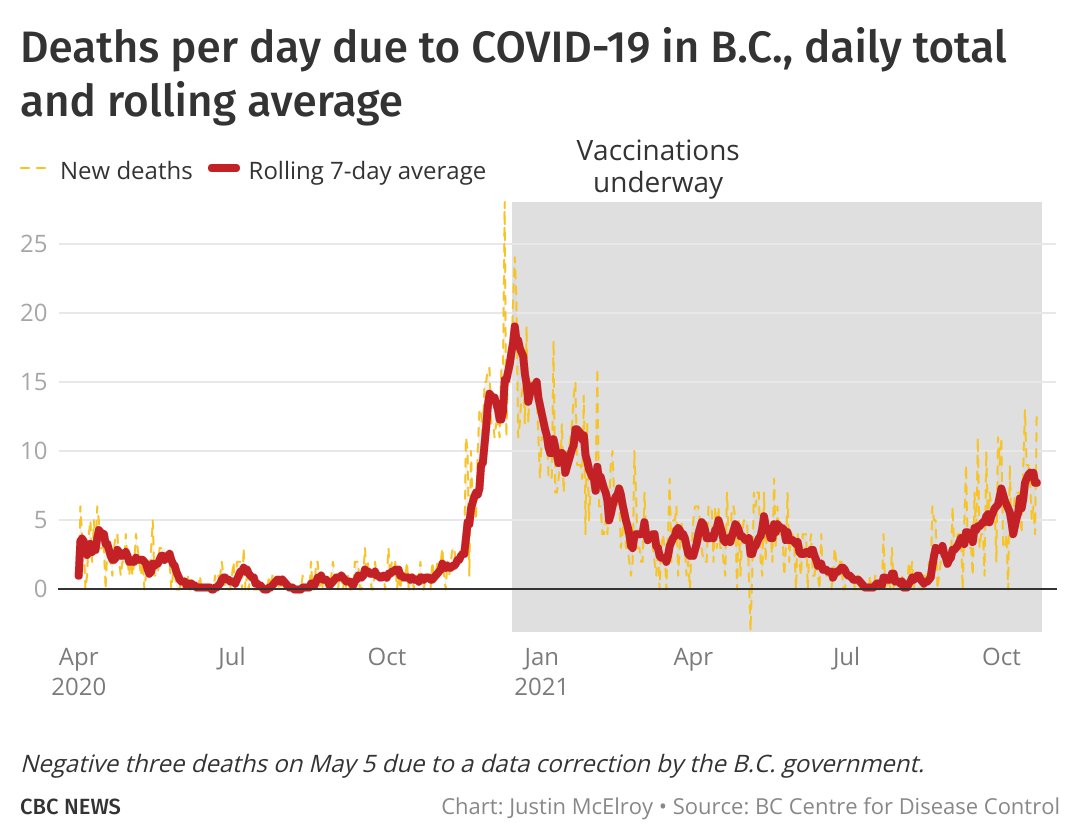
Is there *good* news at the moment?
Well, you could view it from the standpoint that cases aren't doing a huge surge up in 4/5 health regions.
And you could also note that the share of cases in 20somethings is actually down a fair bit in the last few weeks.
Well, you could view it from the standpoint that cases aren't doing a huge surge up in 4/5 health regions.
And you could also note that the share of cases in 20somethings is actually down a fair bit in the last few weeks.
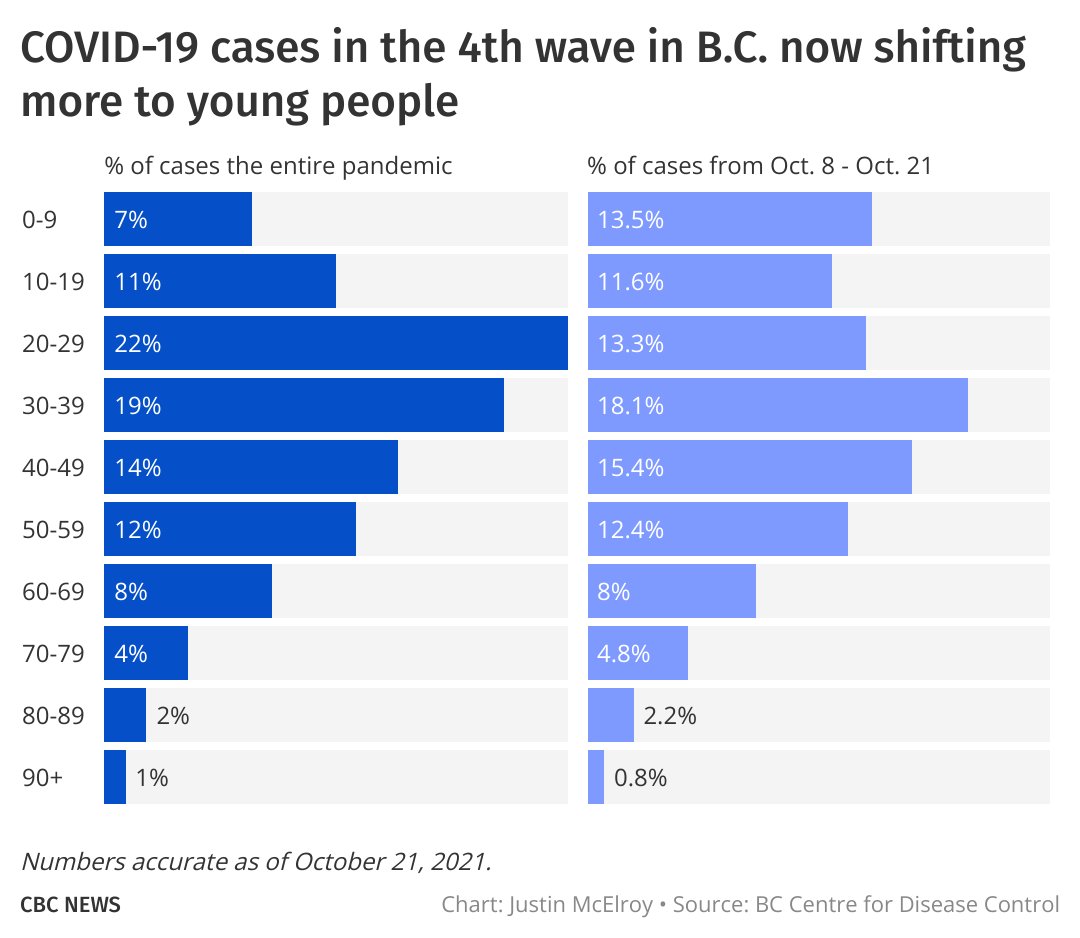
And you could also point out that the rate of cases and hospitalizations by vaccine status is not significantly changing. 
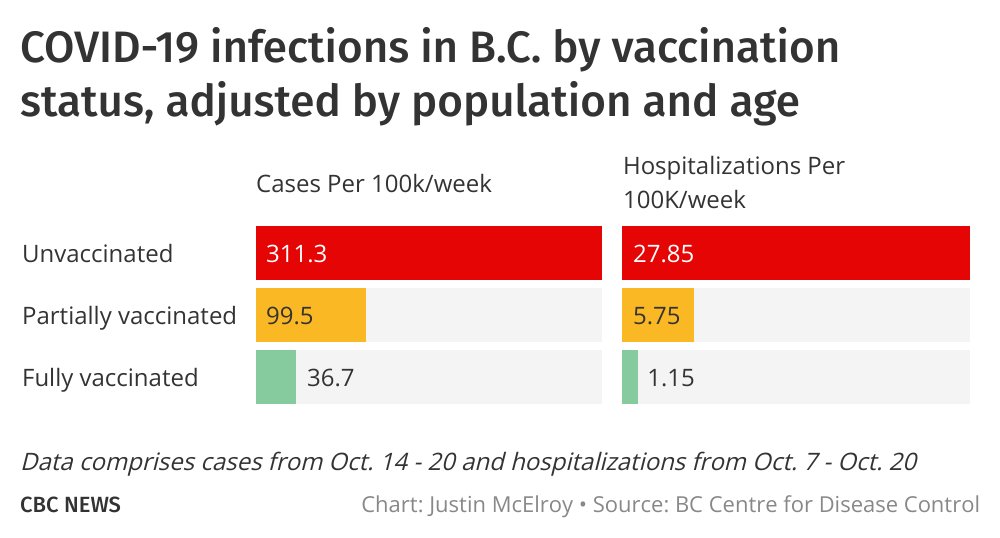
But after two months of a sustained provincewide response (instead of pretending it was Interior only), B.C.'s decline from the height of a Delta-infused 4th wave is pretty middling, with good and bad weeks alternating too often for comfort.
• • •
Missing some Tweet in this thread? You can try to
force a refresh


